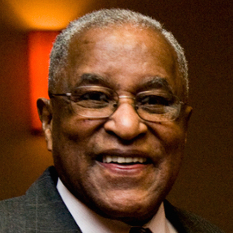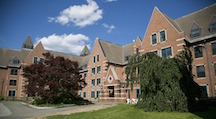 Tufts University in Medford, Massachusetts, is renaming a residence hall in honor of Bernard W. Harleston, the first African American hired to a tenure-track faculty position at the university. South Hall, which was opened in 1991, will now be known as Bernard Harleston Hall.
Tufts University in Medford, Massachusetts, is renaming a residence hall in honor of Bernard W. Harleston, the first African American hired to a tenure-track faculty position at the university. South Hall, which was opened in 1991, will now be known as Bernard Harleston Hall.
Dr. Harleston was raised in Harlem and on Long Island. He is a summa cum laude graduate of Howard University in Washington, D.C., and earned a Ph.D. at the University of Rochester in 1955. A year later, he was hired as an assistant professor of psychology at Tufts University. He was eventually appointed the Moses Hunt Professor of Psychology.

In 1968 Dr. Harleston was appointed provost at The Lincoln University in Pennsylvania. He returned to Tufts two years later as dean of the Faculty of Arts and Sciences. In 1981, Dr. Harleston was appointed president of the City College of New York, the first African American to hold that post. After serving as president of City College for 11 years, Dr. Harleston joined the faculty at the University of Massachusetts at Boston. Now 86 years old, he is a senior associate at the New England Resource Center for Higher Education at the University of Massachusetts at Boston.


What an amazing honor for Bernie. Not only is he a wonderful man but he also had a lasting impact on Tufts University as the first African American dean of the College of Arts and Sciences. I am so pleased to learn of this great news! Congratulations, Bernie!